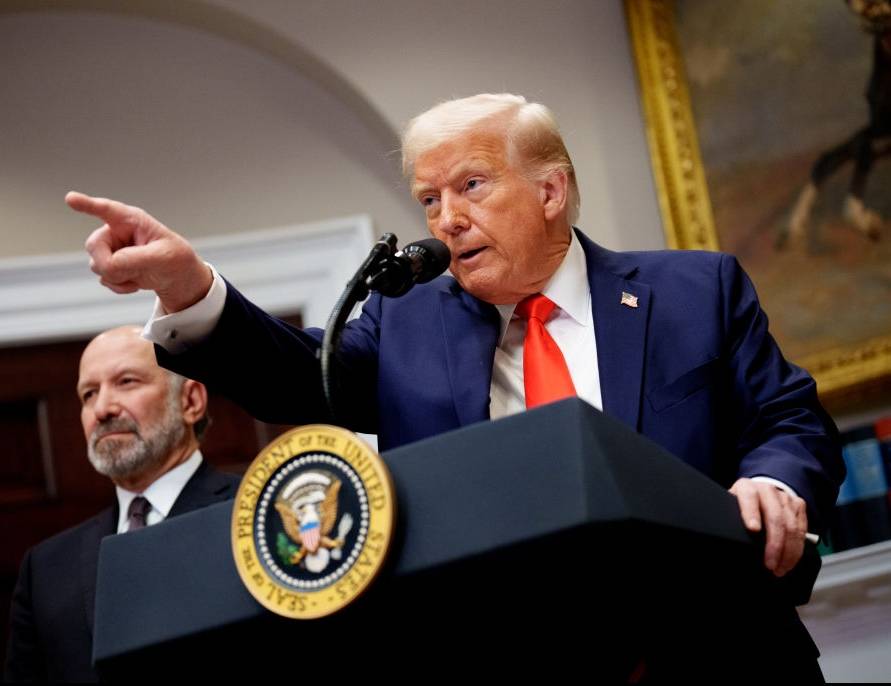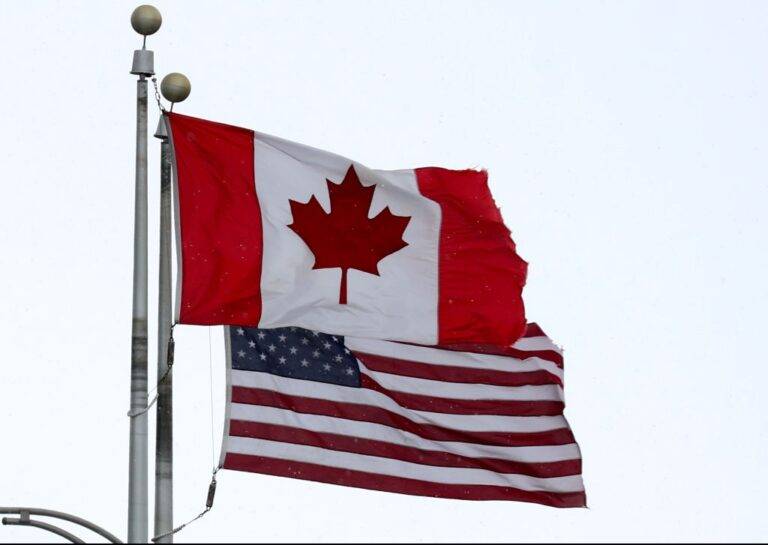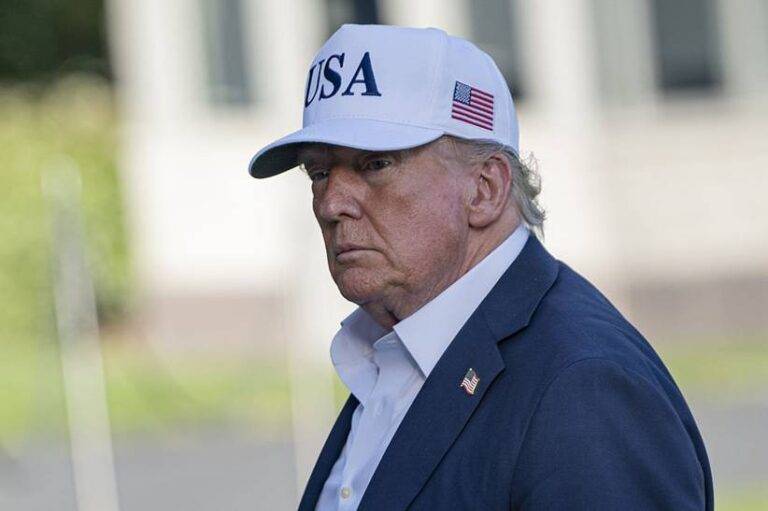
GettyImages 22026078251
President Donald Trump has reacted to Ontario’s 25% fee on electricity exports to three U.S. states.
Accusing Canada of engaging in unfair trade practices, President Trump released a detailed statement on Truth Social, announcing his decision to double tariffs on steel and aluminum imports from Canada, increasing them from 25% to 50%.
“Due to Ontario, Canada, imposing a 25% tariff on electricity exports to the United States, I have directed my Secretary of Commerce to implement an ADDITIONAL 25% tariff, raising the total to 50%, on all steel and aluminum coming into the U.S. from Canada, which is now one of the highest tariffed nations in the world,” Trump wrote.
The President stated that this new tariff policy will take effect on Wednesday.
Note: Tariffs are taxes levied on imported goods, with the companies importing the products responsible for paying the tax to the government.
This marks the latest intensification of the ongoing trade conflict, which has unsettled financial markets and created tension between the two nations.
The president also declared, “I will soon be declaring a National Emergency on Electricity in the affected region. This will enable the U.S. to take swift action to address Canada’s aggressive stance.”
Trump’s comments weren’t limited to steel and aluminum tariffs; he also criticized Canada’s agricultural policies and called for immediate changes.
“Canada must immediately eliminate their Anti-American Farmer Tariff, which ranges from 250% to 390% on various U.S. dairy products. This has long been an outrageous practice,” Trump wrote.
Escalating Tensions: Potential Auto Tariffs
Trump’s threats continued, warning that if Canada doesn’t remove other unfair, long-standing tariffs, he would significantly raise tariffs on cars coming into the U.S. on April 2nd. He stated that this move would essentially cripple Canada’s automobile manufacturing industry.
The president also mentioned Canada’s reliance on U.S. military support as another example of the imbalanced economic relationship.
“Canada pays very little for national security and depends on the United States for military protection,” Trump wrote. “We’re subsidizing Canada to the tune of over $200 billion a year. WHY? This cannot continue.”
Trump’s “51st State” Proposal
Perhaps the most startling part of Trump’s statement was his ongoing suggestion that the solution to these disputes might be for Canada to become part of the United States.
“The only logical step is for Canada to become our cherished 51st state,” the president wrote. “This would eliminate all tariffs and other issues.”
He further argued that joining the U.S. would provide Canadians with tax reductions, enhanced security, and more, saying: “Canada would be safer, more secure, and better off economically. No more border issues, and the U.S. would grow stronger and more powerful with Canada as a key part of it.”
Trump continued, suggesting that merging the two countries would create a global powerhouse: “The artificial division will finally be gone, and we’ll have the safest and most prosperous nation in the world, with Canada playing a central role in making it even greater.”
Economic Consequences and Market Reactions
Trump’s aggressive trade policies have already caused significant turbulence in the financial markets. The S&P 500 dropped 2.7% on Monday, wiping out all gains since his re-election in November 2024. The index fell an additional 0.4% on Tuesday following his latest tariff announcement.
Harvard economist Larry Summers warned that Trump’s unpredictable trade tactics are dampening economic growth. “All the emphasis on tariffs and the resulting uncertainty are both reducing demand and pushing prices up,” he shared on X.
- In response to Trump’s escalated tariffs, Goldman Sachs downgraded its U.S. growth forecast for the year from 2.2% to 1.7%, while increasing the likelihood of a recession to 20%. The firm noted that the White House could still reconsider these measures if economic conditions worsen.
However, Trump maintains that his policies are essential for America’s long-term economic success. In a recent Fox News interview, he defended the trade war, stating: “This is a big transition, and we’re bringing wealth back to America. It will take some time, but it will be great for us.”
The White House has highlighted potential positive outcomes, such as major automakers like Honda, Volkswagen, and Volvo considering new U.S. factory investments. However, economists remain doubtful about the long-term impact of these tariffs.





